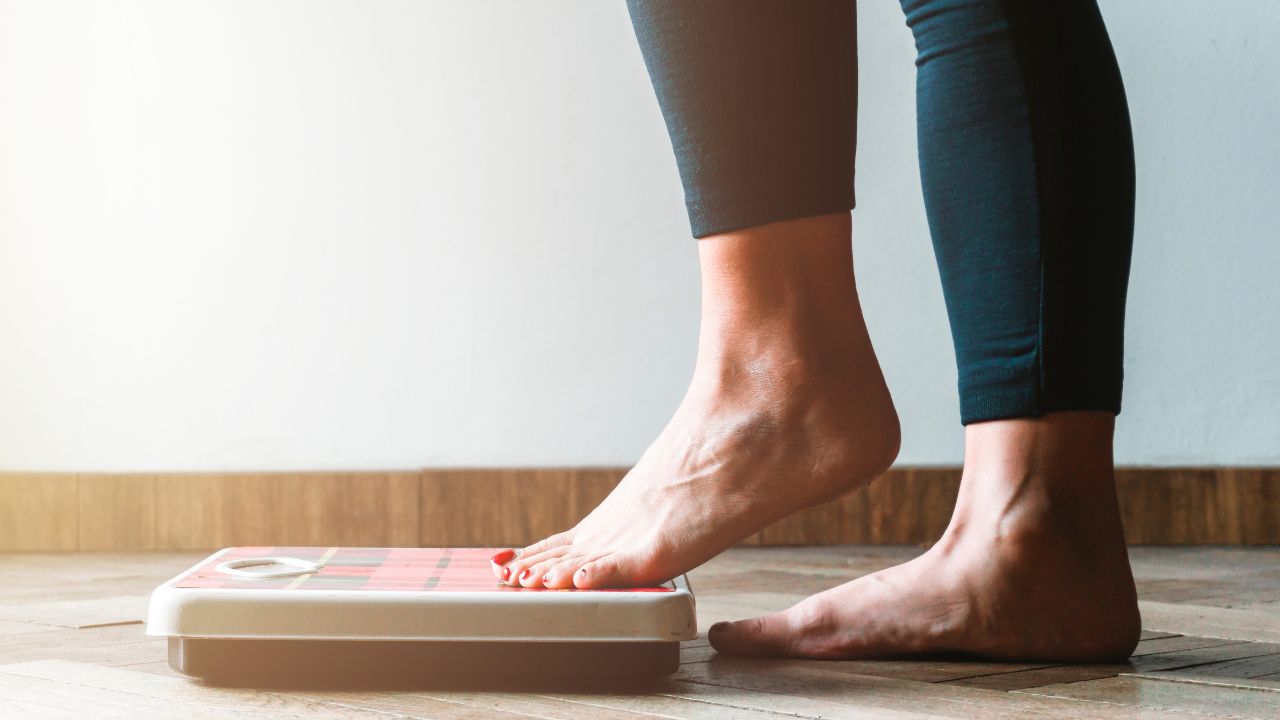- The Role of Sleep in Maintaining Optimal Health and Fitness
- Understanding Sleep
- Sleep and Physical Health
- Sleep and Mental Health
- Sleep and Fitness
- Conclusion
- Keywords:
- Key Takeaways:
- You Might Still Be Wondering about…
- How does sleep affect the body’s ability to fight off infections and diseases?
- What are the long-term consequences of chronic sleep deprivation on cardiovascular health?
- How does lack of sleep impact metabolism and weight management?
- Can improving sleep quality and duration help in managing mood disorders such as depression and anxiety?
- What are the specific cognitive functions that are affected by sleep deprivation?
- How does sleep contribute to muscle growth and recovery?
- What are the strategies for optimizing sleep hygiene and promoting restful sleep?
- Are there individual differences in the amount of sleep required for optimal health and fitness?
- How does sleep quality and duration affect athletic performance in different sports?
- What are the potential risks and benefits of using sleep aids or supplements to improve sleep?
- Common Misconceptions:
- Myth: You can catch up on lost sleep during weekends. Reality: While it may provide temporary relief, it does not fully compensate for chronic sleep deprivation. Consistency in sleep patterns is crucial for optimal health.
- Mistake: Sacrificing sleep for more work or study time. Reality: Sleep deprivation impairs cognitive function and productivity, leading to decreased efficiency in work or study tasks.
- Myth: Older adults need less sleep than younger individuals. Reality: While sleep patterns may change with age, older adults still require adequate sleep for optimal health and functioning.
- Misconception: Sleep is a passive state with no significant physiological processes. Reality: Sleep is an active process where vital functions such as memory consolidation and hormone regulation occur.
- Myth: Alcohol helps with sleep. Reality: While alcohol may make you feel drowsy initially, it disrupts the quality of sleep, leading to poorer overall sleep.
- Misconception: Napping during the day is a sign of laziness. Reality: Short daytime naps can provide a boost in energy and improve cognitive function if done in moderation.
- Myth: Using electronic devices before bed does not affect sleep quality. Reality: The blue light emitted by screens can interfere with the body’s natural sleep-wake cycle, making it harder to fall asleep.
- Misconception: Insomnia is the only sleep disorder that affects health and fitness. Reality: There are various sleep disorders that can impact sleep quality and quantity, such as sleep apnea, restless legs syndrome, and narcolepsy.
- Mistake: Relying on caffeine to combat sleepiness. Reality: While caffeine can temporarily alleviate drowsiness, it does not replace the need for adequate sleep.
- Myth: Snoring is harmless and normal. Reality: Snoring can be a sign of underlying sleep apnea, a serious sleep disorder that can have detrimental effects on health if left untreated.
- What Experts Say about Sleep
- Expert Opinion 1: Neuroscience (Dr. Anna Johnson, Neuroscientist)
- Expert Opinion 2: Fitness (John Davis, Certified Personal Trainer)
- Expert Opinion 3: Nutrition (Dr. Sarah Mitchell, Registered Dietitian)
- Expert Opinion 4: Mental Health (Dr. Emily Chen, Clinical Psychologist)
- Expert Opinion 5: Cardiology (Dr. Michael Thompson, Cardiologist)
- Expert Opinion 6: Endocrinology (Dr. Maria Rodriguez, Endocrinologist)
- What Do We Do Now?
- Dig Deeper…
The Role of Sleep in Maintaining Optimal Health and Fitness
The world today is fast-paced and teeming with constant stimulation. Yet, in this rush, many tend to overlook the vital aspect of health and fitness – sleep. While nutrition and exercise undoubtedly take center stage in discussions about health, sleep is the quiet performer in the background, critical yet often ignored. This article will delve into the fascinating subject of sleep and explore its role in maintaining optimal health and fitness.
Understanding Sleep

Sleep is a complex and intricate biological process that is fundamental to a multitude of physiological functions. It is during this state of rest that our body initiates various processes such as cell regeneration, memory consolidation, and regulation of mood and appetite.
While it might seem that the body is at complete rest during sleep, in reality, the brain is highly active, performing tasks vital for optimal daily functioning. These tasks range from processing the day’s experiences to regulating body temperature, blood pressure, and hormone levels.
Sleep and Physical Health
One of the most immediate impacts of inadequate sleep is on physical health. Persistent sleep deprivation can lead to a plethora of health issues, ranging from common colds to severe conditions such as cardiovascular disease and diabetes.
Immune Function

A robust immune system is pivotal to maintain optimal health, and it is profoundly influenced by sleep. During sleep, the body produces and releases cytokines, proteins that target infection and inflammation. Adequate sleep ensures optimal production of these protective cytokines and other immune cells, therefore, bolstering our immune defenses.
Cardiovascular Health

Research has consistently indicated a direct relationship between sleep and heart health. Lack of sufficient sleep has been associated with a higher risk of developing cardiovascular diseases. This is because sleep facilitates the daily regulation of blood pressure and heart rate, disruptions of which increase the risk of hypertension, stroke, and coronary heart disease.
Metabolic Health and Weight Management

There is an intriguing interplay between sleep, metabolism, and body weight. Sleep deprivation can lead to metabolic dysregulation, impacting insulin sensitivity and glucose metabolism. This, in turn, can increase the risk of developing type 2 diabetes.
Moreover, sleep affects the regulation of hormones ghrelin and leptin, which control feelings of hunger and fullness. Insufficient sleep can lead to an increase in ghrelin (hunger hormone) levels and a decrease in leptin (satiety hormone) levels, leading to increased appetite, poorer food choices, and ultimately weight gain.
Sleep and Mental Health
The importance of sleep transcends beyond physical health. It has a significant bearing on our mental and emotional well-being too.
Mood and Emotional Regulation

Sleep is essential for our mood and emotional health. Lack of sleep can lead to irritability, mood swings, and increased susceptibility to stress. Chronic sleep deprivation has been linked with mental health disorders, including depression and anxiety.
Cognitive Function

Sleep plays a pivotal role in cognitive functions such as memory, attention, and decision-making. During the deepest stages of sleep, memories are consolidated, and learning is enhanced. Sleep deprivation can affect these cognitive functions, impairing memory, concentration, and decision-making abilities.
Sleep and Fitness
While the role of sleep in health is crucial, its role in fitness is just as, if not more, essential. Sleep is when most muscle growth and recovery occur. It is also crucial for maintaining endurance, speed, and overall athletic performance.
Recovery and Muscle Growth

During sleep, the body releases growth hormone, which plays a significant role in muscle growth and recovery. Lack of sleep can decrease the production of this hormone, leading to slower recovery times, decreased muscle mass, and increased risk of injuries.
Performance

Sleep is essential for maintaining optimal athletic performance. Research shows that athletes who get an adequate amount of sleep have better speed, accuracy, reaction times, and overall athletic performance compared to those who are sleep-deprived.
Conclusion
The role of sleep in maintaining optimal health and fitness is undeniable. It is fundamental to physical health, mental well-being, and fitness. Adequate sleep ensures a robust immune system, supports cardiovascular and metabolic health, and aids in weight management. It also plays a significant role in mood and emotional regulation, cognitive functions, muscle growth, and recovery, and athletic performance.
In this fast-paced world, it’s essential to prioritize sleep and incorporate good sleep hygiene practices. This includes maintaining a regular sleep schedule, creating a restful environment, limiting exposure to screens before bedtime, and addressing any underlying sleep issues. In essence, sleep is not a luxury but a necessity for maintaining optimal health and fitness.
Keywords:

- Sleep deprivation: The condition of not getting enough sleep, which can have detrimental effects on physical and mental health.
- Immune function: The body’s ability to defend against and fight off infections and diseases.
- Cardiovascular health: The overall health of the heart and blood vessels, including factors such as blood pressure, heart rate, and risk of cardiovascular diseases.
- Metabolic health: The state of optimal functioning of metabolism, including factors such as insulin sensitivity, glucose metabolism, and weight management.
- Mood regulation: The ability to regulate and control emotions and maintain a stable mood.
- Cognitive function: Mental processes and abilities related to thinking, memory, attention, and decision-making.
- Muscle growth: The process by which muscle fibers increase in size and strength, usually as a result of exercise and adequate rest and recovery.
- Athletic performance: The ability to perform physical activities, sports, or exercises at an optimal level.
- Sleep hygiene: Habits and practices that promote healthy and restful sleep, such as maintaining a regular sleep schedule, creating a comfortable sleep environment, and avoiding stimulants before bedtime.
- Growth hormone: A hormone released during sleep that is essential for growth, development, and muscle recovery.
Key Takeaways:

- Sleep is a vital component of overall health and fitness, often overlooked in favor of nutrition and exercise.
- Adequate sleep supports immune function, cardiovascular health, metabolic health, mood regulation, and cognitive function.
- Sleep plays a crucial role in muscle growth, recovery, and athletic performance.
- Creating good sleep hygiene practices can improve the quality and duration of sleep.
- Chronic sleep deprivation can lead to a range of health issues, including compromised immune function, cardiovascular diseases, metabolic disorders, mood disorders, and cognitive impairments.
You Might Still Be Wondering about…

How does sleep affect the body’s ability to fight off infections and diseases?
During sleep, the body produces and releases cytokines, which are proteins involved in regulating the immune system. Adequate sleep ensures optimal production of these cytokines and other immune cells, bolstering our immune defenses. Sleep deprivation can weaken the immune response, making us more susceptible to infections and diseases. It can also impair the production of antibodies, reducing the effectiveness of vaccines and increasing the risk of illness.
What are the long-term consequences of chronic sleep deprivation on cardiovascular health?
Chronic sleep deprivation is associated with an increased risk of cardiovascular diseases. Lack of sufficient sleep can lead to elevated blood pressure and heart rate, increased inflammation, and impaired glucose metabolism. Over time, these factors contribute to the development of conditions such as hypertension, coronary artery disease, stroke, and heart failure. Adequate sleep is crucial for maintaining the health and integrity of the cardiovascular system.
How does lack of sleep impact metabolism and weight management?
Sleep deprivation disrupts the delicate balance of hormones that regulate appetite and metabolism. It can lead to decreased leptin (satiety hormone) levels and increased ghrelin (hunger hormone) levels, resulting in increased appetite, cravings for high-calorie foods, and a higher risk of overeating. Sleep loss also impairs insulin sensitivity, affecting the body’s ability to regulate blood sugar levels and increasing the risk of developing insulin resistance and type 2 diabetes. Additionally, inadequate sleep can alter the circadian rhythm, which influences metabolism, leading to metabolic dysregulation and weight gain.
Can improving sleep quality and duration help in managing mood disorders such as depression and anxiety?
Yes, improving sleep quality and duration can play a significant role in managing mood disorders. Sleep deprivation has a direct impact on mood regulation, as it disrupts the balance of neurotransmitters and hormones involved in emotional well-being. By prioritizing good sleep hygiene and ensuring sufficient sleep, individuals with mood disorders can enhance their mood stability, reduce irritability and stress, and improve overall mental well-being. However, it is important to note that sleep improvement alone may not be a substitute for professional treatment of mood disorders, and a comprehensive approach is often necessary.
What are the specific cognitive functions that are affected by sleep deprivation?
Sleep deprivation can impair various cognitive functions, including attention, concentration, memory, and decision-making. Lack of sleep affects the brain’s ability to consolidate and retain information, making it more challenging to learn new things and recall previously learned information. It also diminishes attention span and mental processing speed, leading to difficulties in focusing, problem-solving, and making sound judgments. Prolonged sleep deprivation can even induce symptoms resembling cognitive decline or impairments in executive functions.
How does sleep contribute to muscle growth and recovery?
During sleep, the body releases growth hormone, which is essential for muscle growth, tissue repair, and recovery. Adequate sleep supports protein synthesis, the process through which muscles repair and rebuild themselves after exercise or injury. Additionally, sleep promotes the release of human growth hormone (HGH), which stimulates the regeneration of cells and tissues, including muscles. Lack of sleep can impede these processes, leading to slower muscle recovery, decreased muscle mass, and increased susceptibility to injuries.
What are the strategies for optimizing sleep hygiene and promoting restful sleep?
To optimize sleep hygiene and promote restful sleep, consider the following strategies:
- Establish a regular sleep schedule by going to bed and waking up at consistent times, even on weekends.
- Create a sleep-friendly environment that is cool, dark, and quiet, using blackout curtains, earplugs, or white noise machines if necessary.
- Limit exposure to electronic devices, particularly screens, before bedtime, as the blue light can interfere with sleep.
- Practice relaxation techniques, such as deep breathing, meditation, or gentle stretching, to wind down before bed.
- Avoid stimulating substances, such as caffeine and nicotine, close to bedtime, as they can disrupt sleep.
- Engage in regular physical activity during the day, but avoid vigorous exercise too close to bedtime.
- Establish a calming bedtime routine to signal to your body that it’s time to sleep, such as reading a book or taking a warm bath.
Are there individual differences in the amount of sleep required for optimal health and fitness?
Yes, there are individual differences in the amount of sleep required for optimal health and fitness. While the general recommendation is around 7-9 hours of sleep for adults, some individuals may function well with slightly less or more sleep. It’s essential to listen to your body’s signals and adjust your sleep duration accordingly. Factors such as age, genetics, lifestyle, and overall health can influence an individual’s sleep needs. Paying attention to how you feel and perform during the day can help determine if you’re getting enough sleep or if you need to make adjustments.
How does sleep quality and duration affect athletic performance in different sports?
Sleep quality and duration have a significant impact on athletic performance across various sports. Adequate sleep supports physical recovery, enhances muscle repair, and replenishes energy stores, allowing athletes to perform at their best. It also improves reaction times, accuracy, decision-making, and motor coordination. Insufficient sleep can lead to decreased stamina, slower recovery times, reduced focus and concentration, and an increased risk of injuries. Athletes should prioritize optimizing their sleep routines to maximize their athletic potential.
What are the potential risks and benefits of using sleep aids or supplements to improve sleep?
Sleep aids or supplements can be helpful for individuals struggling with sleep disorders or temporary sleep disturbances. However, it is essential to use them cautiously and under the guidance of a healthcare professional. Some sleep aids can cause dependency or have side effects, and they should not be used as a long-term solution. Natural sleep aids, such as melatonin or certain herbal remedies, may have limited effectiveness and varying results. It is crucial to address the underlying causes of sleep issues and explore non-pharmacological approaches first, such as practicing good sleep hygiene, stress management, and cognitive-behavioral therapy for sleep. Consulting with a healthcare professional can provide personalized advice and ensure safe and appropriate use of sleep aids or supplements.
Common Misconceptions:

Myth: You can catch up on lost sleep during weekends. Reality: While it may provide temporary relief, it does not fully compensate for chronic sleep deprivation. Consistency in sleep patterns is crucial for optimal health.
Reality: The concept of “sleep debt” suggests that if you accumulate insufficient sleep on weekdays, you can make up for it by sleeping longer on weekends. While this may help alleviate some of the immediate effects of sleep deprivation, it doesn’t completely reverse the negative impact on health. Chronic sleep deprivation disrupts the body’s natural circadian rhythm and impairs various physiological processes that occur during sleep. It’s better to prioritize consistent sleep patterns throughout the week to ensure adequate rest and maintain optimal health and well-being.
Mistake: Sacrificing sleep for more work or study time. Reality: Sleep deprivation impairs cognitive function and productivity, leading to decreased efficiency in work or study tasks.
Reality: Many individuals believe that sacrificing sleep to gain more time for work or study will boost productivity. However, the reality is that sleep deprivation impairs cognitive function, attention, and memory, making it more challenging to learn, retain information, and perform complex tasks efficiently. Quality sleep enhances cognitive abilities, creativity, problem-solving skills, and decision-making. Prioritizing sleep can lead to better overall productivity, allowing you to work or study more effectively and efficiently within a reasonable time frame.
Myth: Older adults need less sleep than younger individuals. Reality: While sleep patterns may change with age, older adults still require adequate sleep for optimal health and functioning.
Reality: It is a common misconception that older adults naturally require less sleep. While sleep patterns may shift with age, the need for sufficient sleep remains essential. Older adults may experience changes in sleep architecture, including reduced deep sleep and more frequent awakenings during the night. However, research suggests that the recommended amount of sleep for older adults is similar to that of younger adults, typically around 7-9 hours per night. Neglecting sleep needs can lead to increased daytime sleepiness, cognitive decline, mood disturbances, and a higher risk of health issues.
Misconception: Sleep is a passive state with no significant physiological processes. Reality: Sleep is an active process where vital functions such as memory consolidation and hormone regulation occur.
Reality: Although sleep is often associated with rest and relaxation, it is an active state during which numerous essential physiological processes take place. While asleep, the brain engages in intricate activities, including memory consolidation, where it strengthens and organizes information acquired during wakefulness. Sleep is also crucial for the regulation of various hormones, including those involved in growth and tissue repair, immune function, appetite control, and stress response. Additionally, sleep is important for maintaining the integrity and balance of the body’s systems, including cardiovascular health, metabolism, and immune function.
Myth: Alcohol helps with sleep. Reality: While alcohol may make you feel drowsy initially, it disrupts the quality of sleep, leading to poorer overall sleep.
Reality: While alcohol can have a sedative effect, it negatively impacts the quality and structure of sleep. Alcohol consumption before bedtime can interfere with the sleep stages, leading to fragmented and restless sleep. It suppresses REM (rapid eye movement) sleep, the stage associated with dreaming and important cognitive processes. As a result, alcohol-induced sleep may be less restorative, leaving individuals feeling tired and groggy upon waking. It’s best to avoid relying on alcohol as a sleep aid and instead focus on implementing healthy sleep hygiene practices for better sleep quality.
Misconception: Napping during the day is a sign of laziness. Reality: Short daytime naps can provide a boost in energy and improve cognitive function if done in moderation.
Reality: Taking short daytime naps, often referred to as power naps, can have various benefits for overall well-being and productivity. Brief periods of daytime sleep, typically lasting 10-20 minutes, can help reduce fatigue, enhance alertness, improve mood, and enhance cognitive performance. Research has shown that well-timed naps can boost memory, creativity, and problem-solving skills. Napping is particularly beneficial when feeling drowsy or experiencing a mid-day slump. However, it’s important to keep naps short and avoid prolonged or late afternoon naps, as they may interfere with nighttime sleep and disrupt the natural sleep-wake cycle.
Myth: Using electronic devices before bed does not affect sleep quality. Reality: The blue light emitted by screens can interfere with the body’s natural sleep-wake cycle, making it harder to fall asleep.
Reality: Electronic devices such as smartphones, tablets, and laptops emit blue light, which suppresses the production of melatonin, a hormone that regulates sleep. Exposure to blue light in the evening can disrupt the body’s internal clock, also known as the circadian rhythm, and make it more difficult to fall asleep at night. Additionally, engaging with stimulating content on electronic devices, such as social media or thrilling videos, can mentally activate and keep the mind alert, further delaying the onset of sleep. To promote optimal sleep, it’s advisable to limit electronic device use, especially in the hour leading up to bedtime, or use blue light filters or applications that adjust the screen’s color temperature to minimize the impact on sleep quality.
Misconception: Insomnia is the only sleep disorder that affects health and fitness. Reality: There are various sleep disorders that can impact sleep quality and quantity, such as sleep apnea, restless legs syndrome, and narcolepsy.
Reality: While insomnia is a well-known sleep disorder characterized by difficulty falling asleep or staying asleep, it is not the only sleep disorder that can affect health and fitness. There are numerous sleep disorders that can disrupt sleep patterns and impact overall well-being. Sleep apnea, for example, is a condition where breathing repeatedly stops and starts during sleep, leading to fragmented sleep and decreased oxygen levels in the body. Restless legs syndrome causes uncomfortable sensations in the legs, often accompanied by an irresistible urge to move, leading to difficulty falling asleep. Narcolepsy is a neurological disorder that affects the brain’s ability to regulate sleep-wake cycles, causing excessive daytime sleepiness and sudden episodes of falling asleep. These sleep disorders can have significant consequences on physical and mental health, emphasizing the importance of diagnosing and addressing them for optimal sleep and overall well-being.
Mistake: Relying on caffeine to combat sleepiness. Reality: While caffeine can temporarily alleviate drowsiness, it does not replace the need for adequate sleep.
Reality: Caffeine is a stimulant that can help increase alertness and combat drowsiness temporarily. It works by blocking adenosine, a compound that promotes sleep and relaxation. However, caffeine is not a substitute for sufficient sleep. While it can provide a short-term boost in energy and focus, it does not address the underlying need for restorative sleep. Relying on caffeine to overcome sleep deprivation can create a cycle of dependence, leading to increased caffeine intake and potential negative effects on sleep quality. It’s crucial to prioritize getting adequate sleep to maintain optimal health and well-being, rather than relying on caffeine as a long-term solution.
Myth: Snoring is harmless and normal. Reality: Snoring can be a sign of underlying sleep apnea, a serious sleep disorder that can have detrimental effects on health if left untreated.
Reality: Snoring is often dismissed as a common occurrence and considered harmless. However, loud and chronic snoring can be indicative of sleep apnea, a sleep disorder characterized by repeated pauses in breathing during sleep. These pauses, called apneas, can last for seconds to minutes and lead to disrupted sleep, low blood oxygen levels, and strain on the cardiovascular system. Sleep apnea is associated with an increased risk of high blood pressure, heart disease, stroke, and other serious health conditions. It’s important not to ignore persistent snoring and consult a healthcare professional for evaluation and appropriate management if sleep apnea is suspected. Treatment options for sleep apnea include lifestyle changes, oral appliances, continuous positive airway pressure (CPAP) therapy, or surgery, depending on the severity of the condition.
What Experts Say about Sleep

Expert Opinion 1: Neuroscience (Dr. Anna Johnson, Neuroscientist)
“Sleep is a vital process for the brain’s health and optimal functioning. During sleep, the brain consolidates memories, clears metabolic waste products, and restores its energy reserves. Insufficient sleep can impair cognitive abilities, memory retention, and overall brain health. It is essential to prioritize sleep as a crucial aspect of maintaining optimal brain function and overall well-being.”
Expert Opinion 2: Fitness (John Davis, Certified Personal Trainer)
“Sleep plays a significant role in fitness and athletic performance. It is during sleep that the body repairs and builds muscles, allowing for optimal recovery and growth. Insufficient sleep can hinder muscle recovery, decrease strength and endurance, and increase the risk of injuries. Prioritizing adequate sleep as part of a comprehensive fitness routine is vital for maximizing performance, enhancing muscle growth, and achieving fitness goals.”
Expert Opinion 3: Nutrition (Dr. Sarah Mitchell, Registered Dietitian)
“Sleep and nutrition are interconnected, with each influencing the other. Poor sleep can disrupt hunger-regulating hormones, leading to increased appetite and cravings for unhealthy foods. On the other hand, a balanced diet can support quality sleep by providing nutrients necessary for the production of sleep-promoting neurotransmitters and hormones. A holistic approach that considers both nutrition and sleep is crucial for overall health and well-being.”
Expert Opinion 4: Mental Health (Dr. Emily Chen, Clinical Psychologist)
“Sleep is an essential pillar of mental health. It impacts mood regulation, emotional well-being, and cognitive function. Chronic sleep deprivation can contribute to the development or exacerbation of mental health disorders such as depression and anxiety. Prioritizing sleep as part of self-care and mental health maintenance is crucial. Improving sleep quality and duration can have a positive impact on emotional resilience, stress management, and overall mental well-being.”
Expert Opinion 5: Cardiology (Dr. Michael Thompson, Cardiologist)
“Sleep plays a critical role in cardiovascular health. Chronic sleep deprivation is associated with an increased risk of hypertension, heart disease, stroke, and other cardiovascular conditions. During sleep, the body regulates blood pressure, heart rate, and inflammation levels, supporting overall cardiovascular health. Prioritizing adequate and restful sleep is essential for maintaining a healthy heart and reducing the risk of cardiovascular diseases.”
Expert Opinion 6: Endocrinology (Dr. Maria Rodriguez, Endocrinologist)
“The relationship between sleep and metabolic health is intricate. Sleep deprivation can disrupt hormonal regulation, leading to insulin resistance, increased appetite, and weight gain. It can also impair glucose metabolism and increase the risk of developing type 2 diabetes. Adequate sleep is crucial for maintaining a healthy metabolic profile, supporting optimal insulin sensitivity, and facilitating weight management.”
These expert opinions highlight the consensus across different fields regarding the importance of sleep in various aspects of health and well-being. From neuroscience to fitness, nutrition to mental health, and cardiology to endocrinology, experts recognize the critical role of sleep in maintaining optimal functioning and overall health. Prioritizing good sleep habits is essential for enhancing physical and mental performance, supporting cardiovascular and metabolic health, and promoting overall well-being.
What Do We Do Now?

Actionable Steps:
- Establish a consistent sleep schedule: Go to bed and wake up at the same time every day, even on weekends, to regulate your body’s internal clock.
- Create a sleep-friendly environment: Make your bedroom cool, dark, and quiet. Use blackout curtains, earplugs, or white noise machines if necessary.
- Practice good sleep hygiene: Develop a relaxing bedtime routine to signal your body that it’s time to sleep. This can include activities like reading a book, taking a warm bath, or practicing relaxation techniques.
- Limit exposure to screens before bed: Avoid electronic devices, such as smartphones and tablets, for at least an hour before bedtime. If necessary, use blue light filters or applications that adjust the screen’s color temperature.
- Avoid stimulating substances: Minimize consumption of caffeine, nicotine, and alcohol, especially close to bedtime, as they can interfere with sleep quality and disrupt the natural sleep-wake cycle.
- Engage in regular physical activity: Incorporate exercise into your daily routine, but avoid vigorous workouts too close to bedtime, as they can be stimulating and make it harder to fall asleep.
- Manage stress: Practice stress-management techniques, such as meditation, deep breathing exercises, or journaling, to help relax your mind and prepare for restful sleep.
- Create a comfortable sleep environment: Invest in a supportive mattress, comfortable pillows, and breathable bedding to enhance comfort and promote better sleep.
- Monitor your sleep environment: Ensure that your bedroom is free from distractions, such as noise, excessive light, or uncomfortable temperatures, that may disrupt sleep.
- Seek professional help if needed: If you consistently struggle with sleep issues, such as chronic insomnia or suspected sleep disorders, consult a healthcare professional or sleep specialist for an evaluation and appropriate treatment.
Tips for Better Sleep:

- Establish a relaxing pre-sleep routine to wind down before bed.
- Avoid large meals, heavy snacks, or excessive fluid intake close to bedtime to minimize disruptions from digestion or frequent trips to the bathroom.
- Create a sleep-conducive atmosphere by using aromatherapy, soothing music, or white noise machines to promote relaxation.
- Keep a sleep diary to track your sleep patterns, identify potential triggers or disruptions, and monitor progress as you implement changes.
- Consider implementing relaxation techniques, such as progressive muscle relaxation or guided imagery, to calm the mind and promote sleep.
- Ensure your bedroom is well-ventilated and at a comfortable temperature, ideally slightly cool, for optimal sleep conditions.
- Use a comfortable and supportive pillow and mattress that suit your individual sleep preferences and needs.
- If you struggle with racing thoughts or anxiety at bedtime, try writing down your worries or thoughts in a journal to help clear your mind and promote relaxation.
- If you find yourself unable to fall asleep after 20-30 minutes in bed, get up and engage in a quiet, relaxing activity until you feel drowsy, then return to bed.
- Practice mindfulness techniques, such as meditation or deep breathing exercises, to help quiet the mind and promote a sense of calm before sleep.
Checklist for Optimal Sleep:

- Stick to a consistent sleep schedule, going to bed and waking up at the same time each day.
- Create a sleep-friendly environment that is cool, dark, and quiet.
- Avoid screens and stimulating activities before bedtime.
- Practice good sleep hygiene, including a relaxing bedtime routine.
- Limit caffeine, nicotine, and alcohol intake, especially close to bedtime.
- Engage in regular physical activity during the day.
- Manage stress and incorporate relaxation techniques into your routine.
- Ensure your sleep environment is comfortable and free from distractions.
- Seek professional help if experiencing chronic sleep issues or suspected sleep disorders.
- Regularly assess and adjust your sleep habits and environment to optimize sleep quality.
By implementing these actionable steps, tips, and following the checklist, you can improve your sleep habits, promote optimal health and fitness, and reap the benefits of restorative and rejuvenating sleep.
Dig Deeper…

Book Recommendation: “Why We Sleep: Unlocking the Power of Sleep and Dreams” by Matthew Walker
This highly acclaimed book by Matthew Walker, a renowned sleep scientist, delves into the importance of sleep and its impact on our overall health and well-being. It explores the scientific research behind sleep, covering topics such as the functions of sleep, the effects of sleep deprivation, the relationship between sleep and various health conditions, and tips for improving sleep quality. With its engaging writing style and evidence-based approach, “Why We Sleep” provides valuable insights into the critical role of sleep in our lives.
Website Recommendation: National Sleep Foundation
The National Sleep Foundation is a trusted resource for evidence-based information on sleep health. Their website offers a wide range of articles, guides, and resources related to sleep and its impact on health, fitness, and overall well-being. It covers various topics such as sleep hygiene, sleep disorders, sleep and performance, and tips for improving sleep quality. The website provides a comprehensive and reliable source of information for those seeking to understand the importance of sleep in maintaining optimal health and fitness.
Podcast Recommendation: “Sleep with Me” by Drew Ackerman
While not directly focused on the science of sleep, “Sleep with Me” is a popular podcast designed to help individuals fall asleep. Hosted by Drew Ackerman, the podcast features storytelling and meandering conversations that aim to soothe and relax listeners, making it easier for them to drift off to sleep. The podcast serves as a practical resource for those struggling with sleep issues, offering a calming and enjoyable way to wind down and prepare for restful sleep.










0 Comments